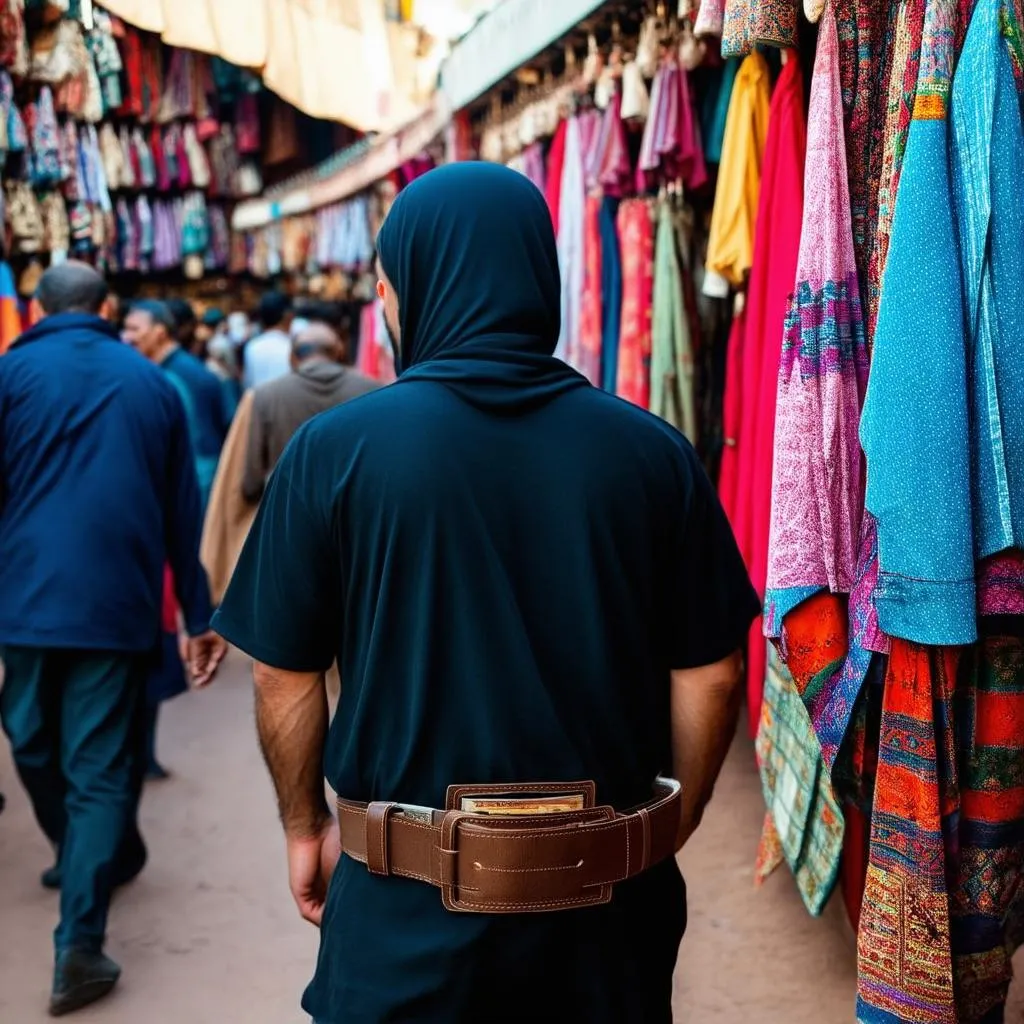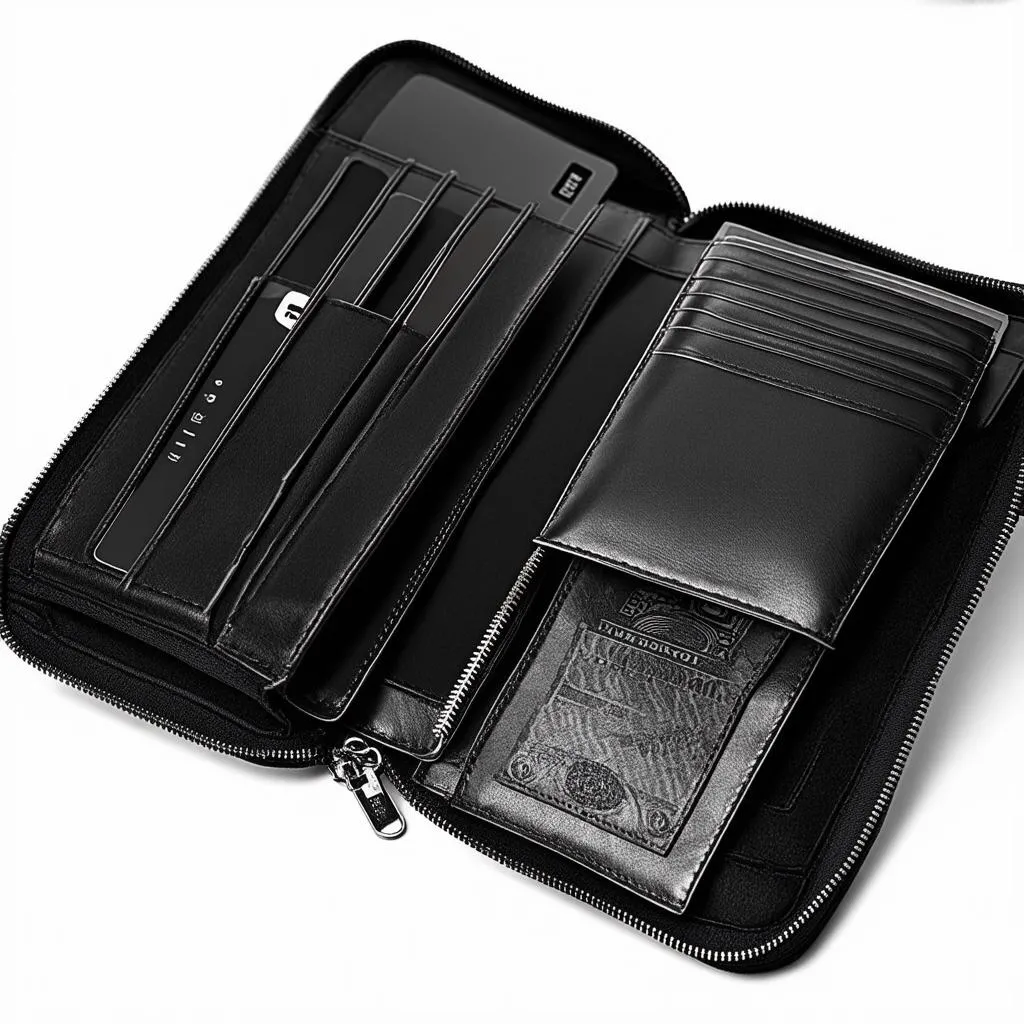Remember that time you were exploring the bustling Grand Bazaar in Istanbul, mesmerized by the vibrant spices and intricate carpets, only to realize you were short on Turkish Lira? Carrying cash safely is a crucial aspect of travel, ensuring you can navigate unexpected situations and fully immerse yourself in new experiences.
This guide delves into the nuances of carrying cash while traveling, offering practical tips and addressing common concerns to help you embark on your adventures with confidence.
Why Carry Cash While Traveling?
While credit cards and digital payment methods are gaining popularity, cash remains king in many parts of the world. Here’s why:
- Not all vendors accept cards: Especially in remote areas or local markets, cash might be your only option.
- Avoid foreign transaction fees: Using your debit or credit card abroad can rack up hefty fees.
- Bargaining power: Cash gives you leverage when haggling for souvenirs or services.
- Emergencies: It’s always wise to have some local currency on hand in case of unexpected events or technological hiccups.
How Much Cash Should I Carry?
The amount of cash you carry depends on your destination, travel style, and spending habits. A good rule of thumb is to carry enough for a day or two of expenses, supplementing with card payments or ATM withdrawals as needed.
For instance, if you’re planning a trip to Tokyo, known for its efficient public transport and abundance of convenience stores, carrying around ¥10,000-¥20,000 per day should suffice. However, if you’re venturing off the beaten path in the Scottish Highlands, having a larger cash reserve might be necessary.
Don’t forget to check out our in-depth guides on how much cash you can travel with domestically and internationally for more specific information.
Smart Ways to Carry Cash When Traveling
1. Money Belts and Pouches
Money belts worn discreetly under your clothing offer a secure and convenient way to carry larger denominations. These belts, often made from moisture-wicking fabric, are designed for comfort during long journeys. Similarly, neck pouches worn beneath your shirt provide easy access to your cash and cards while remaining hidden from view.
2. Hidden Pockets and Wallets
Consider clothing with hidden pockets, such as zippered compartments in pants or jackets. These discreet pockets are ideal for stashing away emergency cash or smaller bills for daily expenses. Specialized travel wallets with RFID blocking technology offer an extra layer of security against electronic theft.
3. Divide and Conquer
Don’t put all your eggs in one basket. Distribute your cash between different bags and pockets. This way, if one bag gets lost or stolen, you’ll still have backup funds.
4. Utilize Hotel Safes
When staying in hotels, take advantage of in-room safes to store your passport, extra cash, and valuable belongings. This minimizes the risk of loss or theft while you’re out exploring.
What Not to Do When Carrying Cash
1. Avoid Large Wads of Cash
Flashing large sums of money can attract unwanted attention. Only carry the amount of cash you need for the day and leave the rest securely stored.
2. Don’t Keep All Your Cash in One Place
As mentioned earlier, dividing your cash into multiple locations minimizes the impact of potential theft or loss.
3. Be Mindful of Surroundings
Stay alert in crowded areas or tourist hotspots, as these can be prime locations for pickpockets. Be aware of your surroundings and keep your belongings close.
FAQs:
Q: Is it better to exchange currency before or after arriving at my destination?
A: It depends. Exchanging a small amount before you go can be helpful for immediate expenses upon arrival, but you’ll often get better exchange rates at ATMs or banks in your destination country.
Q: What should I do if my cash is lost or stolen?
A: Report the incident to the local police and contact your bank or credit card company to cancel any stolen cards. It’s wise to keep copies of important documents, including your passport and travel insurance information, separate from your cash.
Feng Shui Tips for Travel Finances
According to Feng Shui principles, the color purple is associated with wealth and abundance. Consider carrying a purple wallet or money clip to attract prosperity during your travels.
Explore More Travel Tips
For further insights and resources on travel preparation and safety, visit travelcar.edu.vn. From packing essentials to navigating cultural nuances, we’ve got you covered.
 Secure Money Belt for Travel
Secure Money Belt for Travel
 Travel Wallet with Hidden Pocket
Travel Wallet with Hidden Pocket
By following these practical tips and staying informed, you can ensure your cash is safe and accessible throughout your journey, allowing you to focus on creating unforgettable memories. Safe travels!